
Table of Contents
Nursing students are often tasked with writing critical analysis essays, a challenging but rewarding exercise that pushes them to delve deeper into nursing concepts, research, and practices. These essays demand more than simply summarizing information; they require students to analyze, evaluate, and synthesize complex ideas, ultimately forming a well-supported argument.
This guide provides a comprehensive roadmap to crafting a compelling critical analysis nursing essay, equipping you with the tools and strategies needed to excel in this academic endeavor.
Understanding the Essence of a Critical Analysis Nursing Essay
A critical analysis nursing essay isn’t just about summarizing a research article or clinical guideline. It’s about dissecting the information, understanding its strengths and weaknesses, and ultimately drawing your own conclusions. This process of critical analysis allows nursing students to develop a deeper understanding of the evidence base, fostering a critical and discerning approach to their practice.
The core of critical analysis nursing essay writing lies in its ability to move beyond simply stating facts and delve into the “why” behind them. This requires a thorough evaluation of the source material, considering aspects such as:
- Methodology: How was the research conducted? Was the methodology appropriate for the research question? Were there any potential biases or limitations?
- Findings: What were the main findings of the research? Are they statistically significant? Do they support or contradict existing knowledge?
- Relevance to nursing practice: How can the findings be applied to actual patient care? Are the recommendations practical and feasible?
- Ethical considerations: Does the research raise any ethical concerns? Were participants adequately informed and protected?
By critically examining these elements, a critical analysis nursing essay demonstrates a student’s ability to think critically and independently. It shows that they can identify potential problems with the research and consider the implications for nursing practice.
Writing a successful critical analysis nursing essay requires more than just a good understanding of the topic. It also necessitates strong writing skills and the ability to structure arguments effectively. The essay should be organized logically, with a clear introduction, body paragraphs that support the main argument, and a conclusion that summarizes the key points and provides a final assessment.
The inclusion of relevant literature and evidence is essential to substantiate the arguments made in the essay. However, it’s not enough to simply list sources; the student must critically analyze and synthesize the information to present a cohesive and informed perspective.
Writing a strong critical analysis nursing essay is a valuable exercise for students, helping them to:
- Develop their critical thinking skills: By engaging in critical analysis, students learn to question information, identify biases, and evaluate the quality of evidence.
- Improve their writing and communication skills: Writing a well-structured and concise essay is crucial for conveying complex ideas effectively.
- Gain a deeper understanding of nursing theory and practice: By analyzing research and guidelines, students gain a better understanding of the evidence base underpinning nursing interventions.
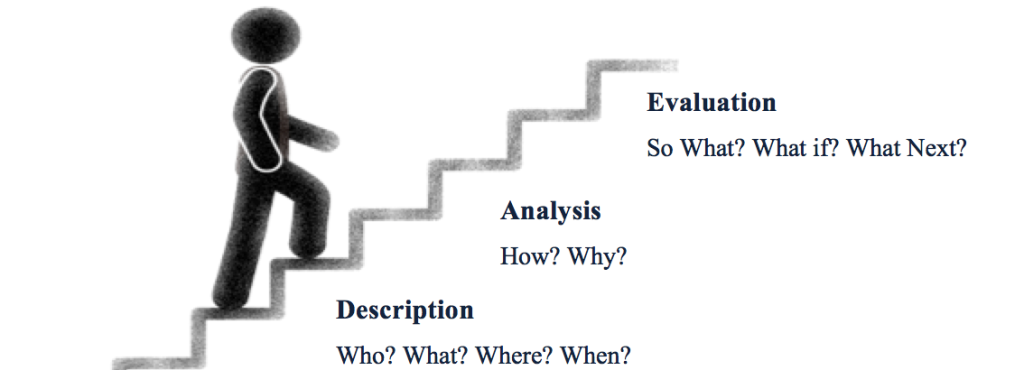
A critical analysis nursing essay is more than just a writing assignment. It’s an opportunity for students to engage with the evidence base, develop their critical thinking skills, and ultimately become more informed and effective nurses. By understanding the essence of critical analysis and applying it to their writing, students can produce essays that are both intellectually stimulating and relevant to their future nursing practice.
Mastering the Structure of a Critical Analysis Nursing Essay
While the structure may vary slightly depending on the specific topic and assignment guidelines, a strong critical analysis nursing essay typically adheres to a standard format:
1. Introduction:
- Grab the reader’s attention: Start with a compelling hook, perhaps a relevant anecdote, statistic, or provocative question.
- Introduce the topic: Clearly state the subject of your analysis and its relevance to nursing.
- State your thesis statement: Your thesis should be a clear, concise argument that summarizes your analysis and provides a roadmap for the essay.
Example:
- Hook: “The increasing prevalence of antibiotic-resistant infections poses a significant threat to patient safety and necessitates a critical reevaluation of current infection control practices.”
- Introduction: “This essay will critically analyze the effectiveness of current hand hygiene protocols in preventing hospital-acquired infections (HAIs) by examining the research evidence on handwashing techniques, adherence rates, and the impact of hand hygiene on patient outcomes.”
- Thesis statement: “While hand hygiene remains a cornerstone of infection control, a comprehensive analysis of current practices reveals shortcomings in implementation, highlighting the need for innovative strategies to enhance adherence and optimize patient safety.”
2. Body Paragraphs:
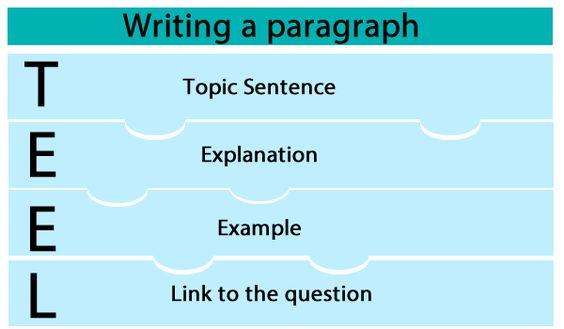
- Develop each point in detail: Each paragraph should focus on a specific aspect of your analysis, addressing a key argument, evidence, or aspect of the subject matter.
- Support your claims with evidence: Use a combination of peer-reviewed research articles, clinical guidelines, professional organizations’ recommendations, and relevant case studies to substantiate your analysis.
- Integrate and synthesize information: Show how the different pieces of evidence connect to support your main argument.
- Employ critical analysis techniques: Go beyond simply summarizing the evidence; analyze its strengths and weaknesses, identify potential biases, and evaluate the implications of the findings.
Example:
- Paragraph 1: “One key weakness of current hand hygiene practices is the limited adherence among healthcare professionals. Research suggests that adherence rates vary widely, with some studies reporting rates as low as 40%. This inconsistency raises concerns about the effectiveness of current protocols and highlights the need for interventions to improve compliance.”
- Paragraph 2: “Another crucial aspect of infection control is the effectiveness of different handwashing techniques. Studies comparing alcohol-based hand rubs with soap and water have yielded mixed results. While both methods demonstrate efficacy, alcohol-based rubs offer advantages in terms of convenience and quicker drying time. However, the potential for skin irritation and resistance to certain organisms necessitates careful consideration of the appropriate technique for specific clinical settings.”
3. Conclusion:
- Restate your thesis: Summarize your main argument in a clear and concise manner.
- Synthesize your findings: Highlight the key insights gained from your analysis.
- Provide a broader perspective: Connect your analysis to broader implications for nursing practice and the healthcare system as a whole.
- Offer recommendations: Based on your analysis, suggest potential solutions or areas for further research.
Example:
- Conclusion: “This critical analysis has revealed the limitations of current hand hygiene protocols in effectively preventing HAIs, highlighting the need for a multi-faceted approach. Future research should focus on developing innovative strategies to enhance adherence, promoting a culture of safety within healthcare organizations. Furthermore, the effectiveness of different handwashing techniques in specific clinical settings requires further investigation.”
Essential Components of a Compelling Critical Analysis Nursing Essay
Beyond the structural elements, there are several key components that contribute to a compelling critical analysis nursing essay:
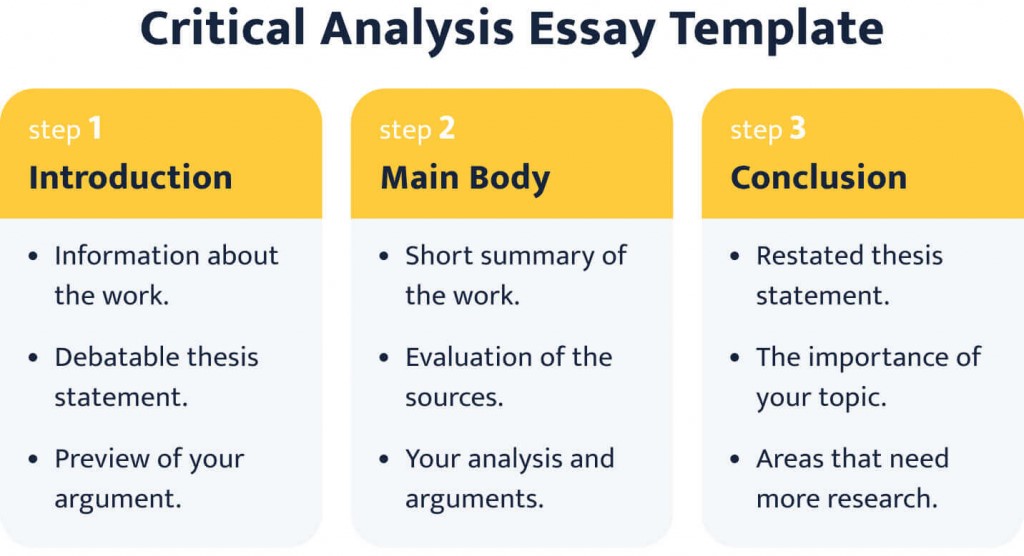
1. Clear and Concise Writing:
- Choose strong verbs and specific language: Avoid jargon or overly technical language unless it is essential to convey a specific concept.
- Use a formal and objective tone: Maintain a neutral and professional voice throughout the essay.
- Organize your thoughts logically: Ensure smooth transitions between paragraphs and a coherent flow of ideas.
2. Strong Argumentation:
- Develop a clear and defensible thesis statement: Your thesis should be a specific, arguable statement that summarizes your analysis.
- Support your claims with credible evidence: Utilize a variety of sources to bolster your analysis, including peer-reviewed research articles, clinical guidelines, professional organizations’ recommendations, and relevant case studies.
- Analyze and evaluate evidence critically: Go beyond simply summarizing the evidence; explore its limitations, potential biases, and implications.
3. Critical Thinking and Analysis:
- Examine the underlying assumptions of the subject matter: Identify the implicit biases and perspectives shaping the topic.
- Consider different viewpoints and perspectives: Explore alternative arguments and perspectives to demonstrate a nuanced understanding.
- Draw logical conclusions based on your analysis: Formulate your own interpretation and insights based on the evidence presented.
4. Professional and Ethical Considerations:
- Adhere to ethical guidelines for scholarly writing: Cite sources accurately and avoid plagiarism.
- Acknowledge limitations and biases: Be transparent about any potential limitations or biases in your analysis.
- Maintain confidentiality and privacy: When discussing patient cases or clinical experiences, prioritize ethical considerations and protect patient confidentiality.
Strategies for Writing a Critical Analysis Nursing Essay Successfully
1. Choosing a Topic:
- Select a topic that interests you: This will make the writing process more enjoyable and engaging.
- Consider the scope and complexity of the topic: Choose a topic that is manageable within the assigned length and time frame.
- Focus on a specific aspect of the topic: Narrow down your focus to a specific area or issue within the broader topic.
2. Conducting Research:
- Identify relevant sources: Utilize online databases, academic journals, professional organizations’ websites, and other credible resources.
- Evaluate the credibility and relevance of sources: Ensure that the sources you use are reputable, current, and relevant to your topic.
- Take thorough notes and organize your research: Maintain a system for organizing your notes and keeping track of your sources.
3. Developing Your Argument:
- Create an outline: Structure your essay logically and organize your ideas into a coherent flow.
- Develop a strong thesis statement: Your thesis should be a clear, specific, and arguable statement that summarizes your analysis.
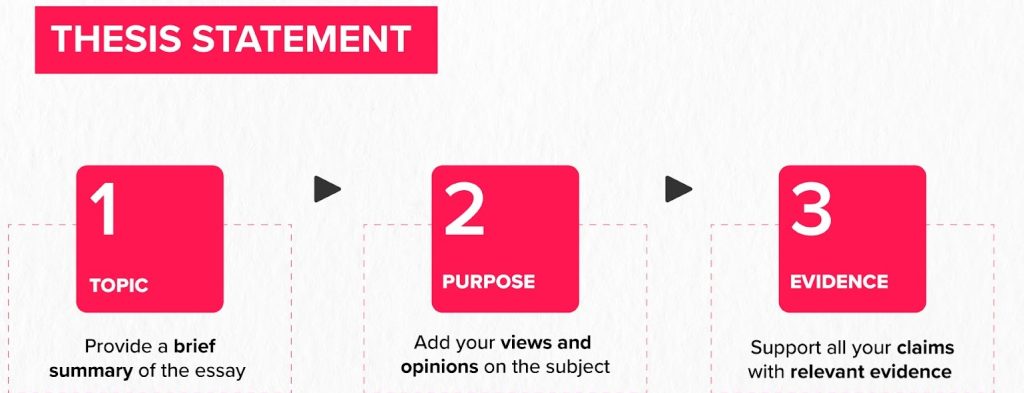
- Support your claims with evidence: Use a combination of research findings, clinical guidelines, professional recommendations, and relevant case studies to substantiate your analysis.
4. Writing and Revising:
- Write a first draft: Focus on getting your ideas down on paper without worrying too much about perfect grammar or style.
- Revise and edit your work: Ensure that your writing is clear, concise, and grammatically correct.
- Seek feedback from others: Ask peers, mentors, or instructors to review your work and provide feedback.
Navigating the Pitfalls of a Critical Analysis Nursing Essay
Writing a critical analysis nursing essay demands more than simply summarizing facts or presenting opinions. It requires a deep understanding of the topic, a clear articulation of your arguments, and a strong ability to critically analyze the evidence. This essay will explore common pitfalls in crafting a critical analysis nursing essay and offer strategies for avoiding them.
Pitfall #1: Lack of a Clear Thesis Statement:
A strong thesis statement is the backbone of any critical analysis nursing essay. Without it, your essay will lack direction and focus. Make sure your thesis statement clearly presents your main argument and the key points you will explore.
Solution: Craft a concise, debatable thesis that directly answers the essay prompt. For example, instead of stating “Technology is changing nursing practice,” argue “The integration of telehealth into nursing practice presents both opportunities and ethical challenges.”
Pitfall #2: Insufficient Evidence and Support:
Your critical analysis nursing essay must be grounded in evidence. Rely on credible sources, including peer-reviewed research articles, professional guidelines, and relevant literature.
Solution: Thoroughly research your topic, utilizing a variety of sources. Integrate these sources into your essay through accurate citations and paraphrasing, ensuring your arguments are supported by concrete evidence.
Pitfall #3: Lack of Critical Analysis:
Simply stating facts or summarizing information does not constitute a critical analysis nursing essay. Your essay should go beyond description and analyze the significance and implications of the information presented.
Solution: Ask challenging questions, analyze perspectives, and explore the strengths and weaknesses of different arguments. Evaluate the impact of evidence on current nursing practice and suggest potential solutions or future directions.
Pitfall #4: Weak Organization and Structure:
A well-structured critical analysis nursing essay is easy to follow and understand. Organize your arguments logically, using clear transitions and headings to guide the reader through your analysis.
Solution: Develop a detailed outline before writing. Use a clear structure, such as problem-solution, cause-and-effect, or compare-contrast, to present your arguments cohesively.
Pitfall #5: Lack of Conclusion:
Your critical analysis nursing essay should conclude with a strong summary of your main points and a clear statement of your final conclusions.
Solution: Reiterate your thesis statement and synthesize the key findings of your analysis. Offer recommendations or insights for future research and practice based on your findings.
Writing a critical analysis nursing essay is a process. By understanding and avoiding these common pitfalls, you can write a compelling, well-researched, and insightful essay that demonstrates your critical thinking skills and your understanding of the nursing profession.
Sample Critical Analysis Nursing Essay
The Evolving Role of the Nurse: A Critical Analysis of Compassionate Care in a Technological Era
Nursing, a profession steeped in empathy and human connection, finds itself at a crossroads. While technological advancements offer unprecedented tools for diagnosis and treatment, they also risk overshadowing the essential human element of care. This essay critically analyzes the evolving role of the nurse in a rapidly changing healthcare landscape, exploring the challenges and opportunities presented by the integration of technology and the enduring importance of compassionate care.
One prominent challenge is the potential for technology to distance nurses from patients. Electronic health records (EHRs), while streamlining information flow, can also lead to screen-dominated interactions, limiting face-to-face communication and emotional connection. The reliance on data and protocols may inadvertently prioritize efficiency over individual needs, potentially diminishing the holistic and patient-centered approach that defines compassionate care.
However, technology offers significant opportunities for nurses to elevate their practice. Telehealth platforms expand access to care, allowing nurses to reach remote patients and provide virtual consultations. Wearable technology can monitor vital signs remotely, enabling early detection of health issues and proactive interventions. Data analytics empower nurses to identify trends and personalize care plans, fostering more targeted and effective interventions.
Yet, the true value of technology lies in its ability to augment, not replace, human interaction. Nurses must embrace a hybrid approach, utilizing technology to enhance their understanding of patients and their conditions, while remaining deeply engaged in their emotional and social well-being. This necessitates a shift in mindset, where nurses view technology not as a substitute for human touch, but as a powerful tool to amplify their compassion and expertise.
Furthermore, the evolving role of the nurse necessitates a deeper understanding of ethics in the digital age. Data privacy, informed consent, and the responsible use of artificial intelligence are complex issues demanding careful consideration. Nurses must be equipped with the knowledge and skills to navigate these challenges, ensuring that technological advancements remain ethically sound and patient-centered.
In conclusion, the future of nursing is one where technology and compassion intertwine. Nurses must embrace technology as a tool to enhance their practice, while remaining steadfast in their commitment to empathetic and individualized care. By skillfully navigating the challenges and opportunities presented by this evolving landscape, nurses can continue to provide the highest quality care, ensuring that technology remains a powerful instrument in the service of human well-being.
Mastering the Art of Critical Analysis
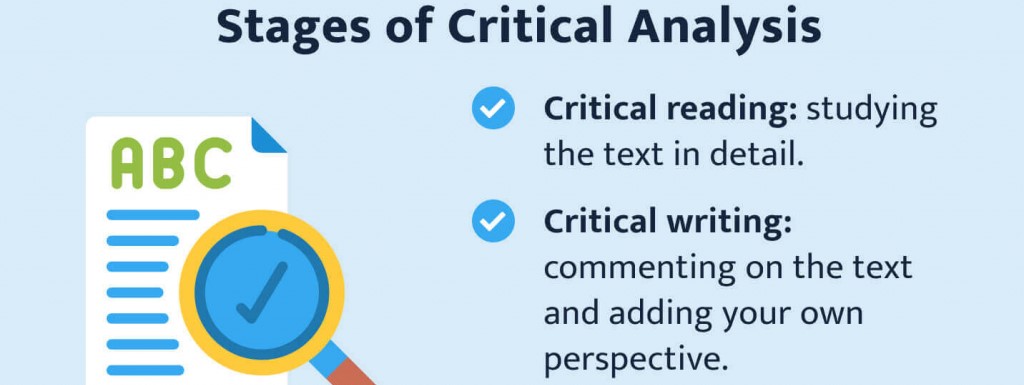
Writing a compelling critical analysis nursing essay is a valuable skill that will serve you well throughout your academic and professional journey. By understanding the core principles of critical analysis, mastering the structure of a strong essay, and avoiding common pitfalls, you can develop a strong foundation for crafting insightful and impactful essays. Remember to approach each essay with curiosity, a critical eye, and a commitment to professional and ethical considerations. With practice and dedication, you can become a proficient critical analyst, contributing meaningfully to the advancement of nursing knowledge and practice.
Get Professional Critical Analysis Nursing Essay Writing Help
Are you looking for help with a critical analysis nursing essay? Then, engage Nursing Papers for professional nursing essay writing assistance. Our service covers topic suggestion, essay writing, proofreading and editing, and plagiarism removal. We can also assist you with crafting original nursing research papers, case studies and dissertations.







